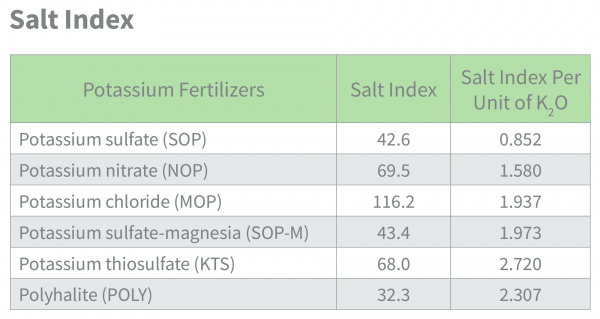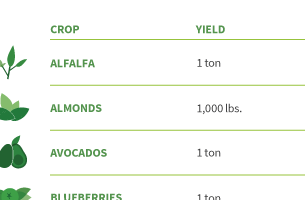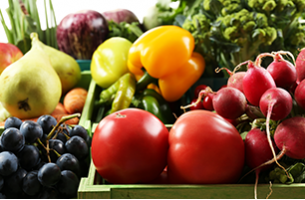Potassium and Your Plants
All plants need potassium. As one of three essential macronutrients, potassium (K) is vital to ensuring plant health and productivity. In fact, potassium is required for activation of over 80 enzymes that support physiological development in plants.
Crop quality, appearance and yield are all affected by potassium. K plays a key role in:
- Aiding in the transport of sugars
- Helping stomata function
- Transporting nutrients and water
- Improving resistance to disease and stress
- Enhancing size, color, and taste
In some plants, potassium is taken up more than any other nutrient. And a deficiency in K can easily jeopardize plant health, quality and marketability. K deficiency symptoms take the form of curling leaf tips and interveinal chlorosis, marginal bronzing and spots on the under surface of leaves.
Growers need to keep in mind that not all sources of K are the same. Some contain high levels of chloride that can be severely detrimental to plant health, growth and productivity – especially for plants that are chloride-sensitive.
A quick look at the salt index of different products can give growers an idea of how much salt a potential K source has.

Fortunately, one source of potassium is high in K, virtually chloride free and offers the added benefit of sulfur in the sulfate form. It’s Protassium+® sulfate of potash (0-0-50-17S). Protassium+ SOP is a smart choice for growers looking for an effective K source that provides plants the potassium they need without the added threat of harmful chloride and salt content. Plus, the 17% sulfate sulfur of Protassium+ fertilizer aids photosynthesis, chlorophyll production, seed production, root growth and more.
There is no denying the importance potassium plays in fostering plant health and quality. Without adequate K, you put your crops and your profits at risk.




